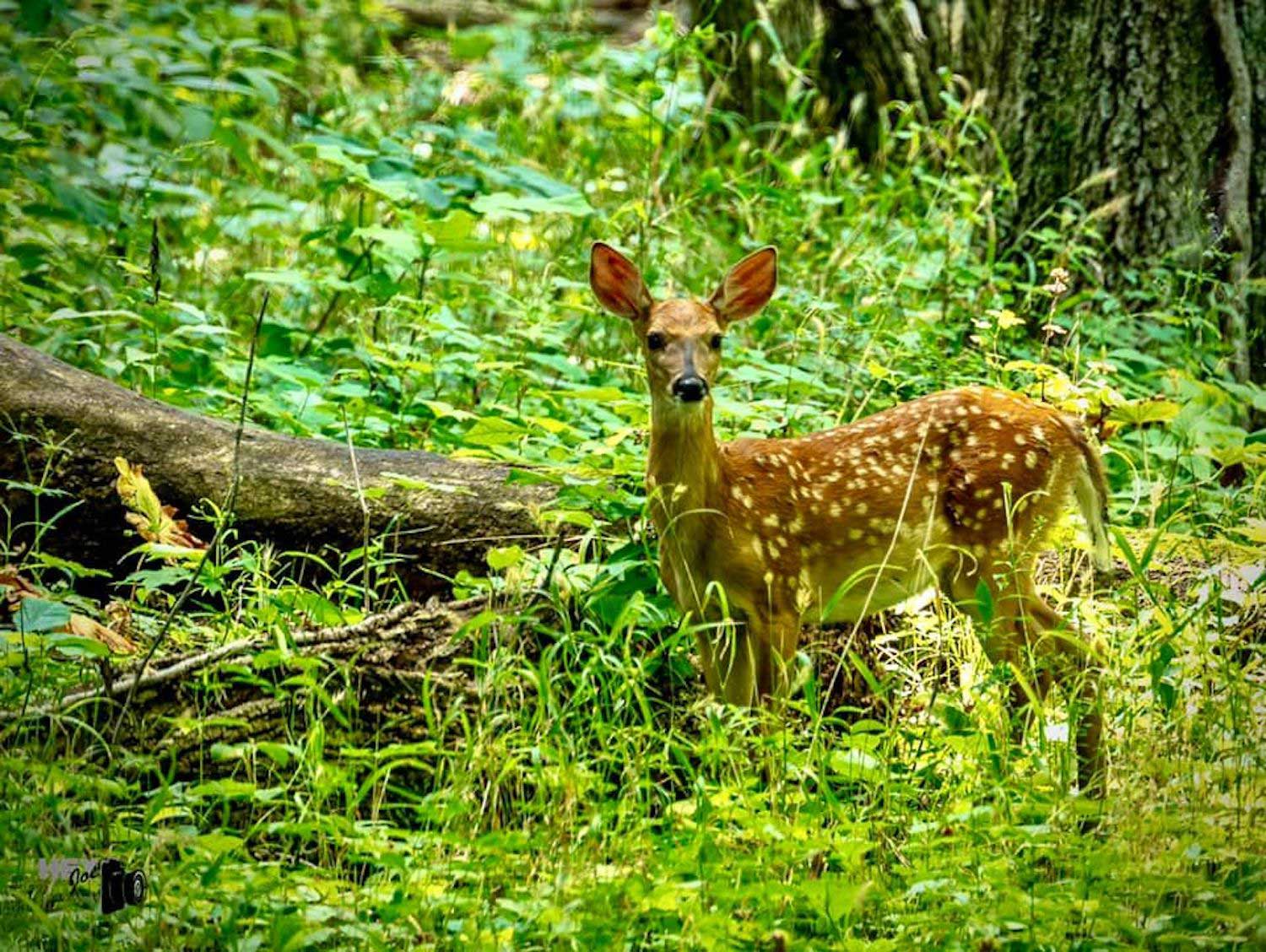Myth buster: Fawns are born without a scent

It's a commonly held belief that white-tailed deer fawns are born without a scent, but it's not quite true. They do have a scent at birth, but it's very faint — and for good reason.
Because their scent is so faint at birth, it makes it more difficult for potential predators to sniff them out. The reason they have very little scent is because their scent glands are not fully developed when they are born, according to the Connecticut Agricultural Experiment Station.
This almost total lack of scent is why does leave their fawns alone for long periods. The mothers leave their babies for several hours at a time for a few weeks after birth so her scent does not rub off on them, the Connecticut Agricultural Experiment Station reports. During this time, she returns several times each day to nurse them. Although she may not be with her fawn or fawns, she's rarely very far away. The does are not usually more than 100 yards from their babies and are always keeping a watchful eye on them.
It's not just being nearly odorless that helps fawns remain hidden away from potential predators. Those white spots on their coat are another protective measure. When we see them up and walking, those white spots may seem quite noticeable, but when their mothers leave them hidden in tall grasses or other hiding spots, those spots mimic dappled sunlight falling to the forest floor, according to the Iowa Department of Natural Resources. The dappling effect, coupled with having only a very light scent, makes it more difficult for predators to find them. The spots typically fade by winter, after the young deer are old enough to survive on their own.
In Illinois, fawns are typically born in late May or early June, according to Wildlife Illinois. They can stand and even run within a few hours of being born, but they don't usually start accompanying their mothers on short trips until a few weeks after they are born. They are typically fully weaned between four and five months after being born.
Because fawns are often left alone for long stretches, well-meaning humans often think they have been abandoned or need to be rescued. This is almost never the case, the Iowa DNR reports. Does rarely abandon their fawns, and when people are trying to helpfully intervene, the mothers are likely nearby keeping a close watch. Remember, too, that fawns are often found in seemingly unusual places, like a window well or porch steps. This alone is not a sign it is abandoned. Keep a watchful eye from a distance to ensure its mother returns.
If you come across a fawn alone, you should quickly and quietly back away unless it is somewhere it is likely to be injured, Wildlife Illinois advises. If you know the fawn is orphaned or the fawn has been wandering alone and crying or bleating for more than a day, contact a wildlife rehabilitator that is licensed to care for deer. Do not attempt to care for the fawn yourself. They require special care, and your intervention could cause more harm than good.
If you must move the fawn for its own safety, look for a safe spot nearby so its mother can easily find it, Wildlife Illinois advises. A doe will not abandon a fawn that has been in contact with a human.
